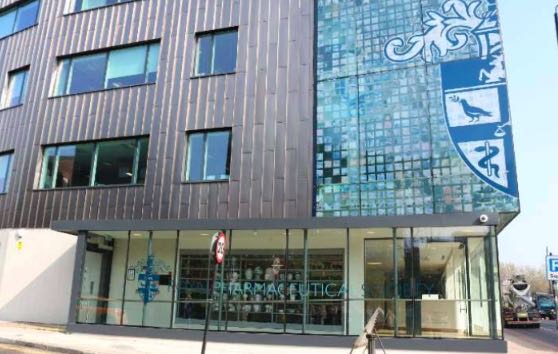In Profession news
Follow this topic
Bookmark
Record learning outcomes
The Royal Pharmaceutical Society (RPS) has announced today (12 September) that it intends to register as a charity and move to become a royal college – The Royal College of Pharmacy.
In doing so, the RPS says it is seeking to align the profession of pharmacy with the wider healthcare system, where the professions are led by Royal Colleges. "We are creating greater recognition for pharmacists with the public and other healthcare professions who understand what 'Royal College' means", the RPS says in a presentation accompanying the announcement.
The organisation, the professional leadership body for pharmacists in Great Britain, says its proposals are the outcome of a comprehensive independent review of its consititution and governance over the last 18 months looking at how the RPS can best support its members and fulfil its leadership role.
"The proposed transition to a Royal College aims to establish a stronger and more collaborative leadership body that can better deliver its strategic ambitions," the RPS says. "Central to this is enhancing and developing RPS core activities in education, assessment and credentialling, and standards and guidance to assure professional standards, to the benefit of patients and the public."
As well as the moves to register as a charity and become a royal college, the RPS's governing body, its Assembly, is proposing that the RPS will create a Trustee Board to tun the charity while the Assembly will be retained to focus on professional leadership across GB. The national boards will be retained to recognise devolved healthcare.
The RPS's knowledge business, Pharmaceutical Press, would become a wholly owned subsidiary accountable to the charitable body.
The constitution and governance review in part followed dismay across the profession when it emerged that the leadership body had abandoned what many saw as a previous ambition to work towards royal college status following the demerger of the regulatory arm as the General Pharmaceutical Council in 2010.
That decision also prompted, in part, the UK's four chief pharmaceutical officers to establish a commission to review leadership across the profession, and to establish the UK Pharmacy Professional Leadership Advisory Board.
The changes will require a vote of support from RPS members before being submitted to the Privy Council as the current Royal Charter will require amendment. Approval will also be needed from the charity regulators across Great Britain. RPS will hold a series of engagement events starting in October to explain, in detail, the proposed changes and gather feedback from members.
The vote, which will require endorsement of the proposals by a two-thirds majority of voting members to progress, is expected early next year.
RPS president Professor Claire Anderson says: "Pharmacy is changing rapidly and the expectations placed on pharmacists and the wider pharmacy team will have profound repercussions in terms of delivering patient care. Becoming a Royal College is a natural progression, reinforcing our commitment to our members and enhancing our capacity to serve patients and the public.
"It will empower us to better advocate for pharmacy and deliver our mission and vision, ensuring that we are always at the forefront of the safe and effective use of medicines."
In an article for Pharmacy Magazine, former RPS president and current English Pharmacy Board member Steve Churton says: "We are on the cusp of a profound and historic change in our professional leadership which will see pharmacy at last take its rightful place, standing firmly and proudly alongside other health and medicatl royal colleges."
More: Read former chief pharmaceutical officer Keith Ridge set out the case for a Royal College in 2022 here.

